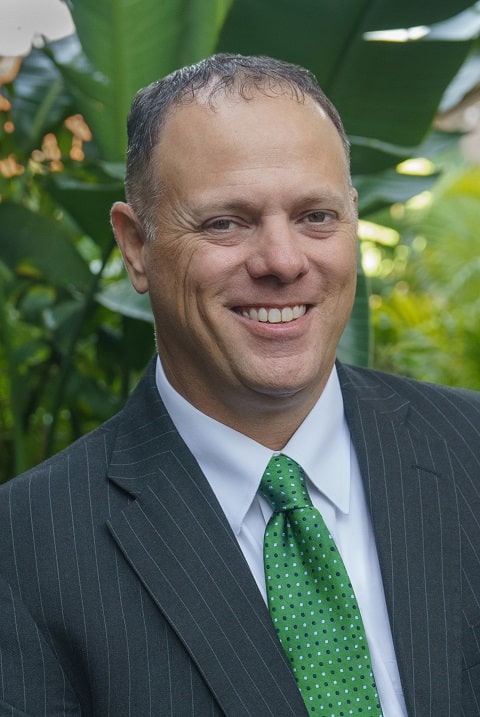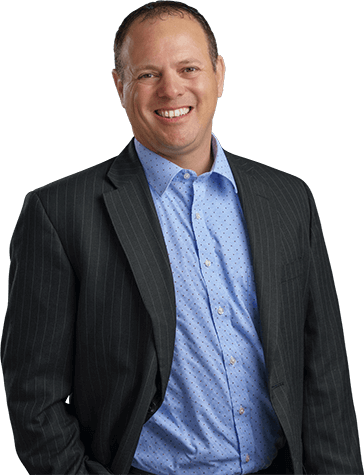18-Wheeler Accident Lawyer Representing Injury Victims for I-10 Truck Crashes
If you or someone you love was injured in a truck accident on Interstate 10 in St. Charles Parish Louisiana, you are in the right place. Louisiana truck crash lawyer Loyd J. Bourgeois has represented victims of I-10 collisions for over 15 years.
Interstate 10 is a major interstate connecting the east and west coast of the United States. In Louisiana, I-10 traverses the state from Pearl River/Slidell in St. Tammany Parish to Vinton/Lake Charles in Calcasieu Parish. Along the way, Interstate 10 cuts across southeast Louisiana through major cities and towns such as New Orleans, Metairie, Kenner, Destrehan, Laplace, Gramercy, Gonzales, Baton Rouge, Plaquemine, Lafayette, Breaux Bridge, Jennings, Iowa, and Lake Charles. Parishes with significant portions of I-10 include St. Tammany, Orleans, Jefferson, St. Charles Parish, St. John, St. James, Ascension, East Baton Rouge, West Baton Rouge, Iberville, St. Martin, Lafayette, Acadia, Jefferson Davis, and Calcasieu. I-10 is known for bumper-to-bumper traffic in many places and for significant crashes, many including big rigs. These 18-wheelers pose a danger to others when driven in a reckless manner.
I-10 is a major transportation corridor for Louisiana’s chemical, oil, and agriculture industries. Along I-10 in St. Charles Parish lies the Bonnet-Carre Spillway bridge – a total length of over 10 miles from near Kenner in Jefferson Parish through St. Charles Parish over the Bonnet-Carre Spillway and a terminus near Laplace in St. John Parish. The two-lane, narrow shoulder, elevated roadway on this portion of I-10 can be especially dangerous.
I-10 also has a large number of eighteen-wheelers, tanker trucks, and hazardous material haulers traversing it daily. Combined with heavy commuter traffic and these heavy trucks, I-10 is a dangerous roadway.
Who is Liable When a Delivery Truck Driver Causes a Wreck?
Some companies classify delivery drivers as independent contractors in an attempt to shift liability and compensation from the company to the individual who may not even have auto insurance. This disturbing trend is not limited to Amazon. FedEd, UPS, WalMart and other retailers and delivery services also rely on a fleet of independent contractors to make their deliveries. Uber and Lyft do this too, but that’s a separate story that happens frequently in our new “gig economy.”
In 2021, online retail purchases were estimated at $4.9 Trillion Dollars and expectations are increased sales up to almost $8 Trillion Dollars by 2025. Of course, with so many purchases made online – companies have to have a way to get the products to their customers. This leads to a large and growing number of delivery vehicles – from Door Dash, UberEats, and others such as florists, edible arrangements, more. Add in furniture delivery from companies such as Rooms To Go, Ashley, and others on lift-gate and tractor-trailers, and you can see commercial and delivery vehicles dominate the highways.
Crazy delivery deadlines pressure drivers to speed and work too many hours. But is this safe?
The once-popular quick pizza delivery trend offers a clue. Those companies compete on how quickly they can get your pizza delivered to your door. Predictably, delivery drivers speeding to meet this ridiculous deadline caused a number of serious injury accidents.
Package delivery drivers face the same unreasonable pressures. The more packages they deliver, the more money they make.
Since Amazon drivers and other independent contractors are not employees, they don’t earn overtime pay for extra hours. Thus, the company has no incentive to limit hours and instead benefits from having drivers rush packages. Many delivery drivers are not required to have commercial licenses and are not subject to Federal Motor Carrier Safety Administration hours of service rules. There is nothing to stop an ambitious driver from pushing himself to the brink of exhaustion to earn more money.
Retailer and delivery services typically claim they are not responsible for the actions of independent contractors. In response, a personal injury lawyer does many things including researching insurance coverage, investigating how the crash happened, and filing suit.
The company should be held liable for the driver’s negligence, such as speeding, driving while distracted (looking down at his GPS possibly), driving while tired to make unreasonable delivery deadlines, etc. This is especially important in a severe crash exceeding the driver’s liability insurance policy limits.
These delivery drivers unfortunately cause a lot of wrecks on I-10 in the New Orleans area, especially as they are racing around trying to make deliveries by a guaranteed day and time. When this happens, the innocent victim should not be responsible for paying his expenses and damages.
If you want an experienced and knowledgeable Louisiana personal injury lawyer, you should call Loyd J. Bourgeois.
Loyd J. Bourgeois Injury & Accident Lawyer is a law firm in Metairie and Luling handling 18-wheeler crash claims throughout Louisiana.
Frequently Asked Questions After an Interstate 10 Semi Crash
18-wheeler crashes are extremely stressful events. Following a wreck with a tank hauler on I-10, many people are unsure of what to do, especially if they or their loved ones suffered injuries. Injuries from a semi-truck collision can cause severe injuries and may require extensive medical care, keep you from working, and have long-lasting effects.
Some frequently asked questions big-rig accident victims often have regarding recovery for their losses are:
Question: The truck driver admitted fault to the officer, so the truck company should be paying my medical bills, correct?
Answer: No. The truck driver’s insurance has no legal obligation to pay for your medical bills until it is ordered to do so by a judge after a trial. Even if the trucker was clearly at fault or admitted it, you will usually not be immediately compensated, and your ongoing medical bills will not be paid directly by the trucker or the trucking company.
Most insurance corporations only issue one settlement check for an injury claim – at the end. The one settlement check will cover all of your harms and losses (including past and future medical bills, lost wages, pain and suffering, etc.).
In order to get the one settlement check, the truck driver’s insurance will require you to sign settlement paperwork stating it has no responsibility to pay anything additional in the future for your particular crash. This means the trucker’s insurance will not start paying your medical bills after an accident until you are willing to settle your complete injury claim with them once and for all.
One of the most common mistakes accident victims make is allowing accident-related medical bills to go unpaid when their own insurance would cover those bills. You can always reimburse your insurance company after settlement. It is difficult to rebuild a credit rating after it has been ruined by unhappy creditors while waiting for a settlement check.
Question: The delivery truck causing the crash had the name of a company on the door. Does this mean the company is liable?
Answer: Maybe. If the delivery driver was in fact in the course and scope of their work performing a delivery for the company, it may likely be responsible. However, if the delivery driver was not using the vehicle for work, the company may not be responsible, although its insurance may cover the crash – and the company may be responsible if certain other facts show the driver was known to be careless but the company still let them have a vehicle. Additional facts may also come into play, such as whether the vehicle was stolen or being used by a non-employee. A lot more goes into determining if the company is liable, and you should speak with an attorney to help you figure it out.
Question: I was hit by a car delivering groceries for a local store, but it didn’t have any marking on it. Is the company still responsible?
Answer: Maybe. If the driver was actually an employee of the store and performing work for the store, the store’s non-owned auto coverage may provide coverage for the crash. Sometimes, the driver is contracted by the store to perform the delivery. In these cases, additional facts may be necessary to determine if the store is responsible. Things like the delivery company’s driver’s record, standards, and other training may be relevant to liability. Either way, you should contact an injury attorney to help you make sure all responsible parties are held liable.






